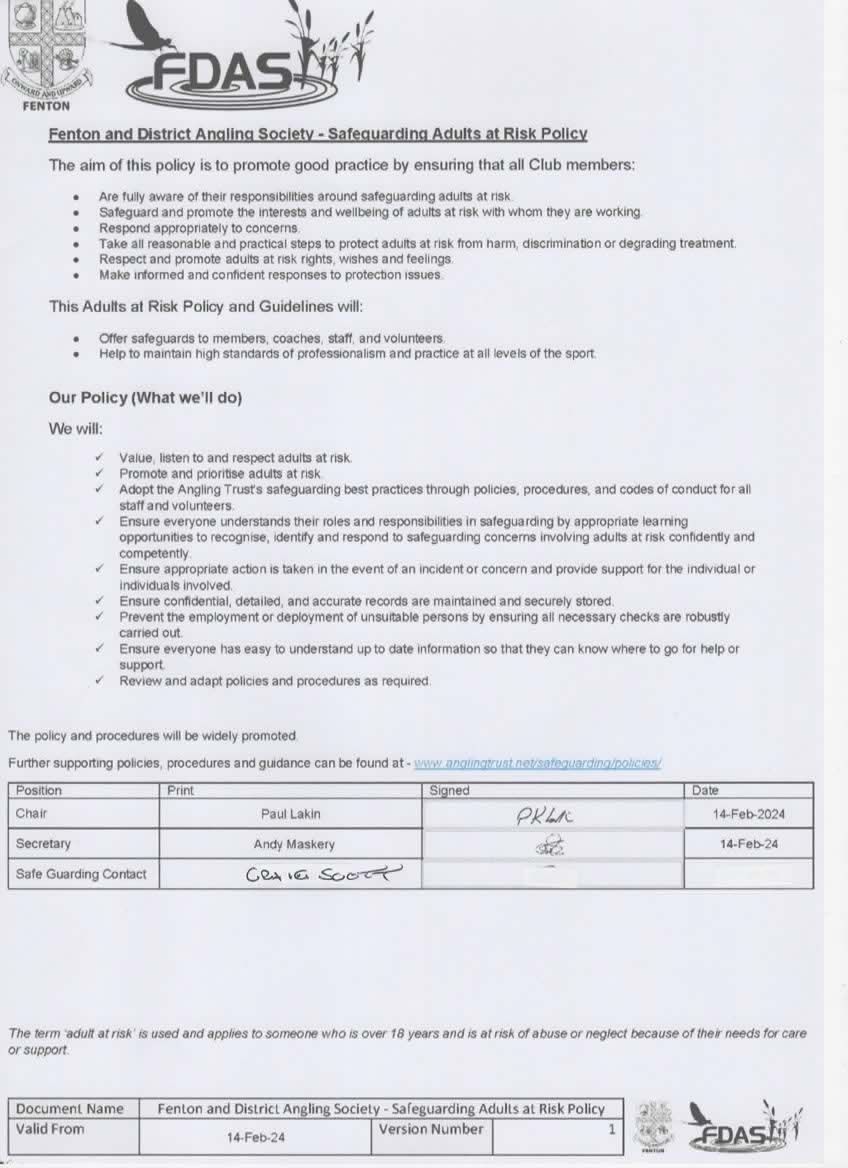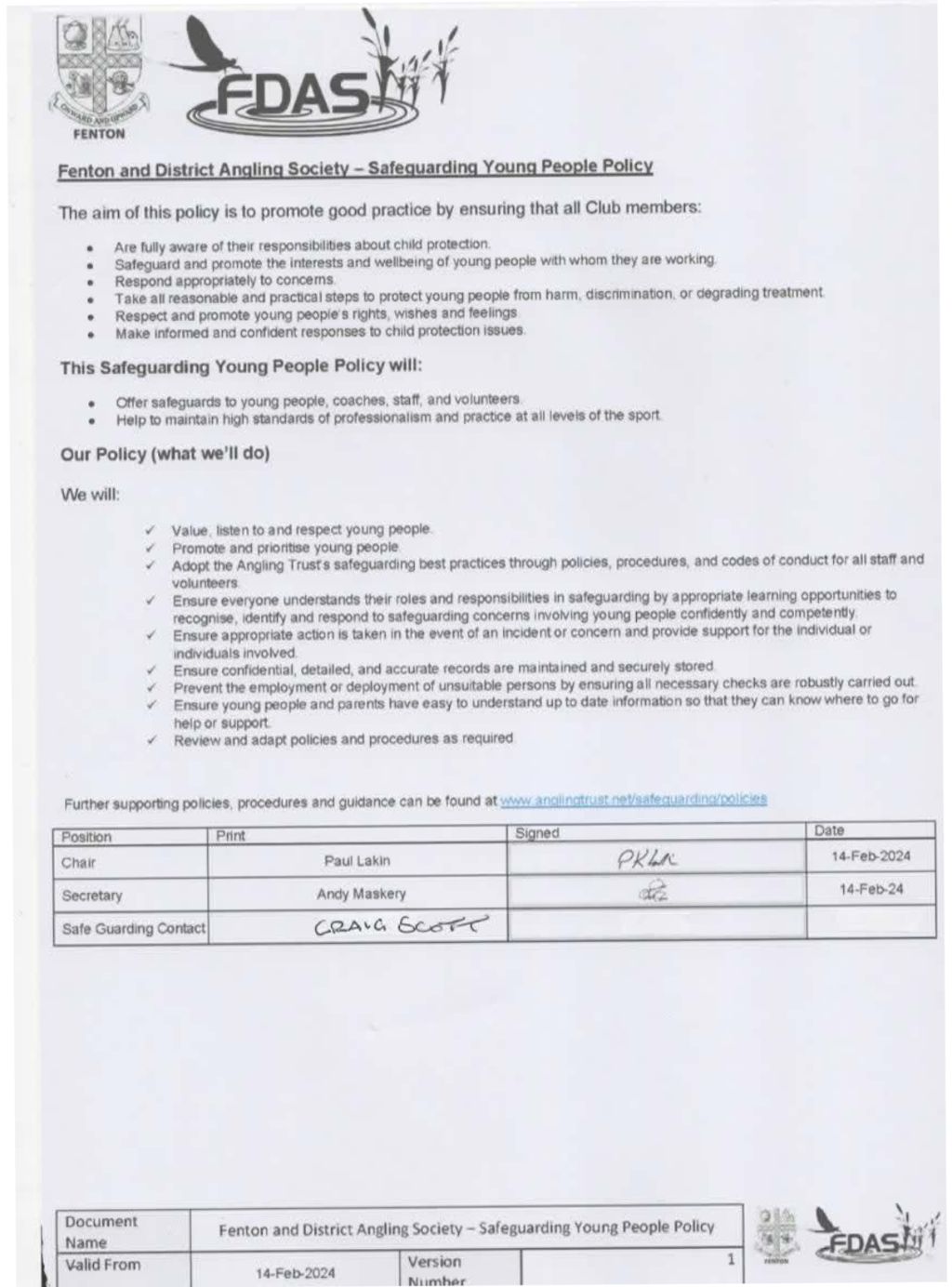GDPR and Health and Safety
To comply with current general data protection regulation it is important that members are aware of our policy;
Any data we hold is held for a maximum period of two years and is subsequently destroyed, this data is used for the purposes of reissuing complimentary and honorary membership cards, any member who does not wish to receive their complimentary or honorary membership by post has the right to have their details removed from our records.
Any data that is held is held securely and will not be shared with any third party.
Images and documents supplied to our website and Facebook page are given voluntarily and are used for the purposes of promotion of the society. Any member who no longer wishes their contributions to be used for this purpose should contact the society and the information will be removed.
General risk assessments are available for organised activities which can be tailored to suit most conditions however as individuals it is important that we carry out our own risk assessment when fishing.
The phrase “risk assessment” can be daunting for some but to simplify, it is as easy as deciding whether or not it is safe to cross the road. If you are not comfortable with any given situation then it should be avoided.
In an ideal world every hazard would be identified and rectified on a daily basis. As the society has so many venues and is overseen by volunteers this is not a realistic expectation, weather conditions may cause trees to fall and banksides to erode. We would ask that any member observing a potentially hazardous situation to contact a society official so that we may investigate.
SAFETY TIPS FOR ANGLERS
1. Check the weatherforecast and conditions beforeyou go fishing and do not fish in severe weather orflooding conditions.
2. Make sure you let someone know where and when you're going to fish and when you are due to return.
3. Ensure you know your location in case you need assistance
4. Double check the fishing spot, is it safe, is the bank steep/slippery/loose? Is the platform in good solid condition?
5. Take a fully charged mobile phone with you.
6. Always dress appropriately, sturdy footwear, sun hat (and sunscreen) in hot weather, warm layers in cold weather, keep a change of clothes in your car.
7. Wear a life jacket if possible and/or secure yourself to the bank if there is a risk of falling into deep or fast flowing water.
8. Be aware of overhead power lines, never carry a rod or pole vertically whilst walking along rivers or canals, do not fish within 30m of an overhead cable, and remember electricity can arc.
9. Night fishing-Consider not night fishing alone.
10. Do not attempt to walk on ice-covered water.
11. Parking - park courteously and sensibly at all times, only drive or park on solid ground to avoid the risk of becoming stuck.
12. Be aware of natural hazards of the countyside including:
a) Weils disease from contact with infected water, use hand sanitiser, cover any cuts or wounds with waterproof plasters before fishing.
b) Ticks can be present where sheep or deer are known to graze and can cause Lyme disease. Keep legs and arms covered.
c) Stings and bites from insects and plants can be nasty. Keep arms and legs covered and consider carrying antihistamine.
FDAS Health and Safety Policy Link - https://drive.google.com/file/d/1lwICPof-6QOARdnlIRgvTqqPxCY-ZF5M/view?usp=sharing
FDAS - Club Incident Report Form Link - https://drive.google.com/file/d/1lwICPof-6QOARdnlIRgvTqqPxCY-ZF5M/view?usp=sharing

